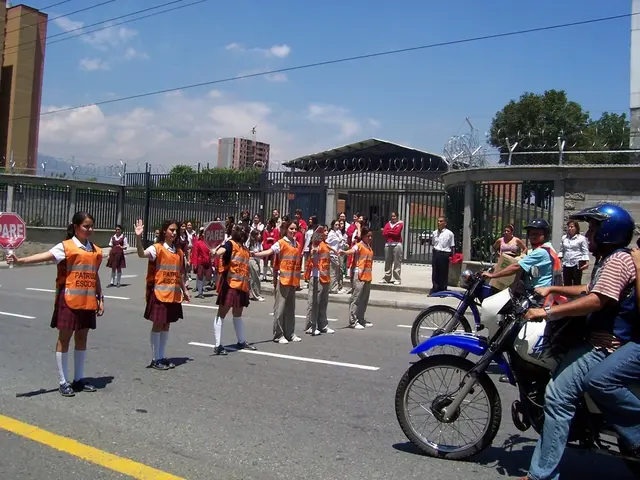A Fresh Sweep: Agriculture Minister Rainer Vows to Shake Things Up
Minister Rainer vows significant change in agricultural policies: a new course ahead. - Agriculture Minister Rainer guarantees "dramatic shift in direction"
In a bold move, Agriculture Minister Rainer has vowed to turn the tide in Germany's agricultural sector, calling for a "real change of course." Top on his agenda is the reinstatement of the agricultural diesel refund, a move he believes will provide instant relief to operations. This decision comes shortly after the traffic light government announced cuts to agricultural diesel subsidies due to the budget crisis, a move largely sparked by relentless protests from the German farming community.
Minister Rainer strongly believes that those who tend to fields and care for livestock deserve "freedom, not paperwork." With this in mind, he has requested his department to scrutinize existing measures and devise new ones aimed at reducing bureaucracy and achieving significant reductions in reporting and documentation requirements. The new government champions a market economy and trust, and stands firm on "empowered citizens" who make informed decisions about their diet and lifestyle.
On animal welfare, Rainer underlined the importance of local farming practices. He conveyed that if livestock husbandry shifts abroad, it's not good news for animals or the environment. Local farming, he insists, guarantees the highest quality and should continue to thrive.
Earlier in the day, Greenpeace activists voiced their concerns outside the Ministry of Agriculture, urging Rainer to tackle abuses in the meat industry. They displayed graphic images of injured, sick, and deceased pigs they claimed were from factory farms in Germany, arguing that living conditions fell far short of accepted standards. Greenpeace argues that lawmakers should enact animal welfare legislation and regulations, and not rely on the industry to define acceptable standards.
Greenpeace is pushing for a reduction in the number of animals reared for meat by at least 50% by 2025 to support a healthy lifestyle, protect the environment, and ensure animal welfare. They argue that this is the only way Germany can meet its agricultural climate goals.
- Alois Rainer
- Change of Course
- CSU
- Germany
- Bureaucracy Reduction
- Greenpeace
- Animal Welfare
- Factory Farming
- Climate Protection
Background Information:
- Despite his pledge to reduce bureaucracy, theHtmlParagraphBreakMinimal Discontinuation of the Federal Animal Welfare Commissioner role raises concerns among animal rights activists. The Commissioner office, currently led by Ariane Kari, is slated to expire by the end of May 2025, and the German Animal Welfare Association President Thomas Schröder has urged Minister Alois Rainer to extend the Commissioner's mandate to maintain trust among animal advocates and tackle issues in agricultural animal husbandry, pet and wildlife protection, and animal research.
- Animal welfare groups have criticized the government for failing to publish a promised reduction strategy on animal testing, a key coalition agreement commitment. This delay is seen as a step backward for animal welfare and innovation in Germany. As the ministry responsible for implementing this strategy, Minister Rainer is expected to continue its development and implementation to minimize animal suffering and enhance Germany’s research standing.
- The Ministry of Agriculture is currently facing staffing shortages and may struggle to realize animal welfare reforms effectively. The roundtable efforts initiated by the former Federal Animal Welfare Commissioner on animal shelters are at risk of being left in limbo without government support and commitment.
- Minister Alois Rainer, in his push for a change of course, has tallied vocational training in agriculture as a key component to alleviate bureaucracy and empower farmers, ensuring they can make informed decisions about their business and industry.
- Recognizing the pressing need for strong animal welfare legislation, Greenpeace advocates that Germany should invest in vocational training for farmers, teaching them sustainable and humane practices, aligning with EC countries' high standards and funding for vocational training in the sector.







